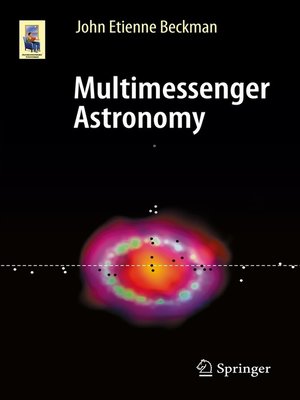
Sign up to save your library
With an OverDrive account, you can save your favorite libraries for at-a-glance information about availability. Find out more about OverDrive accounts.
Find this title in Libby, the library reading app by OverDrive.



Search for a digital library with this title
Title found at these libraries:
| Library Name | Distance |
|---|---|
| Loading... |
Written by a professional astronomer who has worked on a wide spectrum of topics throughout his career, this book gives a popular science level description of what has become known as multimessenger astronomy. It links the new with the traditional, showing how astronomy has advanced at increasing pace in the modern era.
In the second decade of the twenty-first century astronomy has seen the beginnings of a revolution. After centuries when all our information about the Universe has come via electromagnetic waves, now several entirely new ways of exploring it have emerged. The most spectacular has been the detection of gravitational waves in 2015, but astronomy also uses neutrinos and cosmic ray particles to probe processes in the centres of stars and galaxies.
The book is strongly oriented towards measurement and technique. Widely illustrated with colourful pictures of instruments, their creators and astronomical objects, it is backed with descriptions of theunderlying theories and concepts, linking predictions, observations and experiments. The thread is largely historical, although obviously it cannot be encyclopaedic. Its point of departure is the beginning of the twentieth century and it aims at being as complete as possible for the date of completion at the end of 2020.
The book addresses a wide public whose interest in science is served by magazines like Scientific American: lively, intelligent readers but without university studies in physics.






